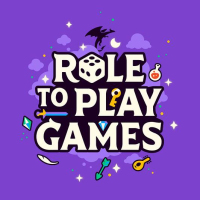Three Rules of Life is a poignant narrative-driven game where a repeating high school senior grapples with his mother’s sudden departure. Navigate fractured friendships, hidden family secrets, and self-discovery in a story where rebuilding trust clashes with confronting harsh truths. Will he mend broken bonds—or lose himself in others’ chaos?
Emotionally Charged Self-Discovery
1. Fragmented Identity: Shape the protagonist’s psyche through introspective choices—embrace vulnerability to heal or armor himself with cynicism to deflect pain.
2. Memory Triggers: Revisit flashbacks of his mother’s absence, piecing together clues about her departure through symbolic dream sequences and abandoned belongings.
3. Personal Growth Minigames: Journaling exercises and therapy-inspired dialogues unlock coping mechanisms, affecting how he interacts with peers and family.
Interwoven Social Dynamics
1. Complex Relationships: Manage ties with a best friend hiding addiction, a teacher with a savior complex, and a estranged sibling harboring resentment—each subplot impacting the main narrative.
2. Rumor System: School gossip spreads dynamically; defend truths or weaponize lies to sway reputations, altering available allies and story branches.
3. Time Management: Balance academic deadlines, part-time jobs, and emotional crises—neglect one area to spiral stress meters, triggering unique breakdown scenes.
Branching Consequences & Hidden Truths
1. Moral Crossroads: Choose between exposing a classmate’s cheating scandal for personal gain or protecting them to salvage dignity, with ripple effects on graduation prospects.
2. Family Secrets: Unearth buried letters, financial records, or voicemails to reconstruct his mother’s motives, leading to one of four gut-wrenching revelations.
3. Endgame Variability: Achieve endings ranging from reconciliation and college acceptance to self-destructive isolation, determined by accumulated trust scores and unresolved trauma.
Atmospheric Storytelling
1. Seasonal Symbolism: Watch environments shift from autumn’s fading warmth to winter’s bleakness, mirroring the protagonist’s emotional journey.
2. Soundtrack Layers: Haunting piano melodies escalate during pivotal choices, while ambient sounds (hallway chatter, ticking clocks) heighten immersion.
3. Art Style Contrasts: Sketch-like flashbacks clash with hyper-realistic present-day scenes, visually emphasizing memory distortion and emotional dissonance.





















Preview: